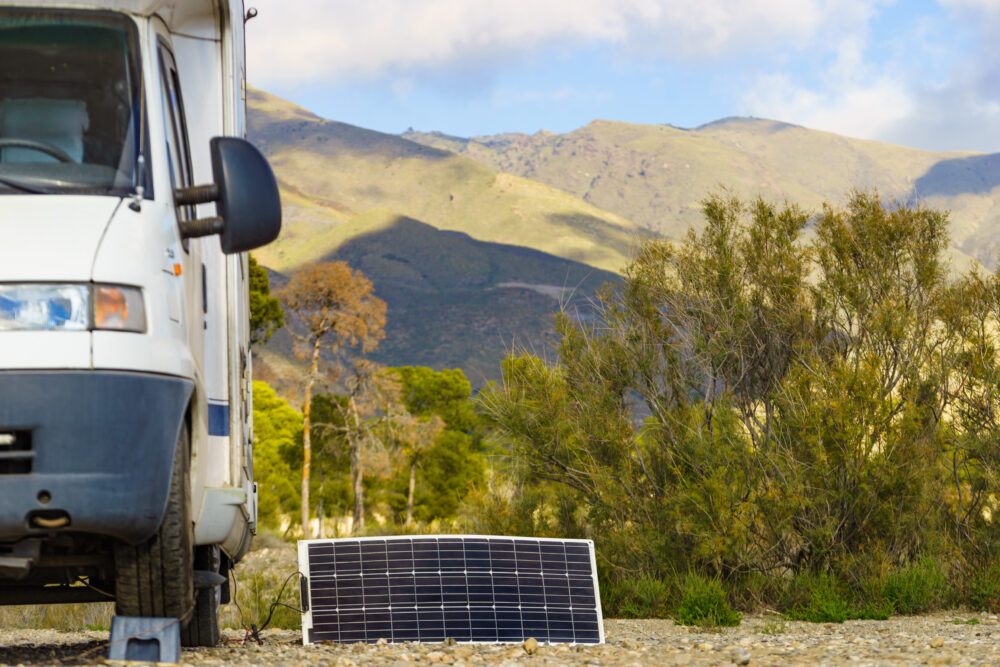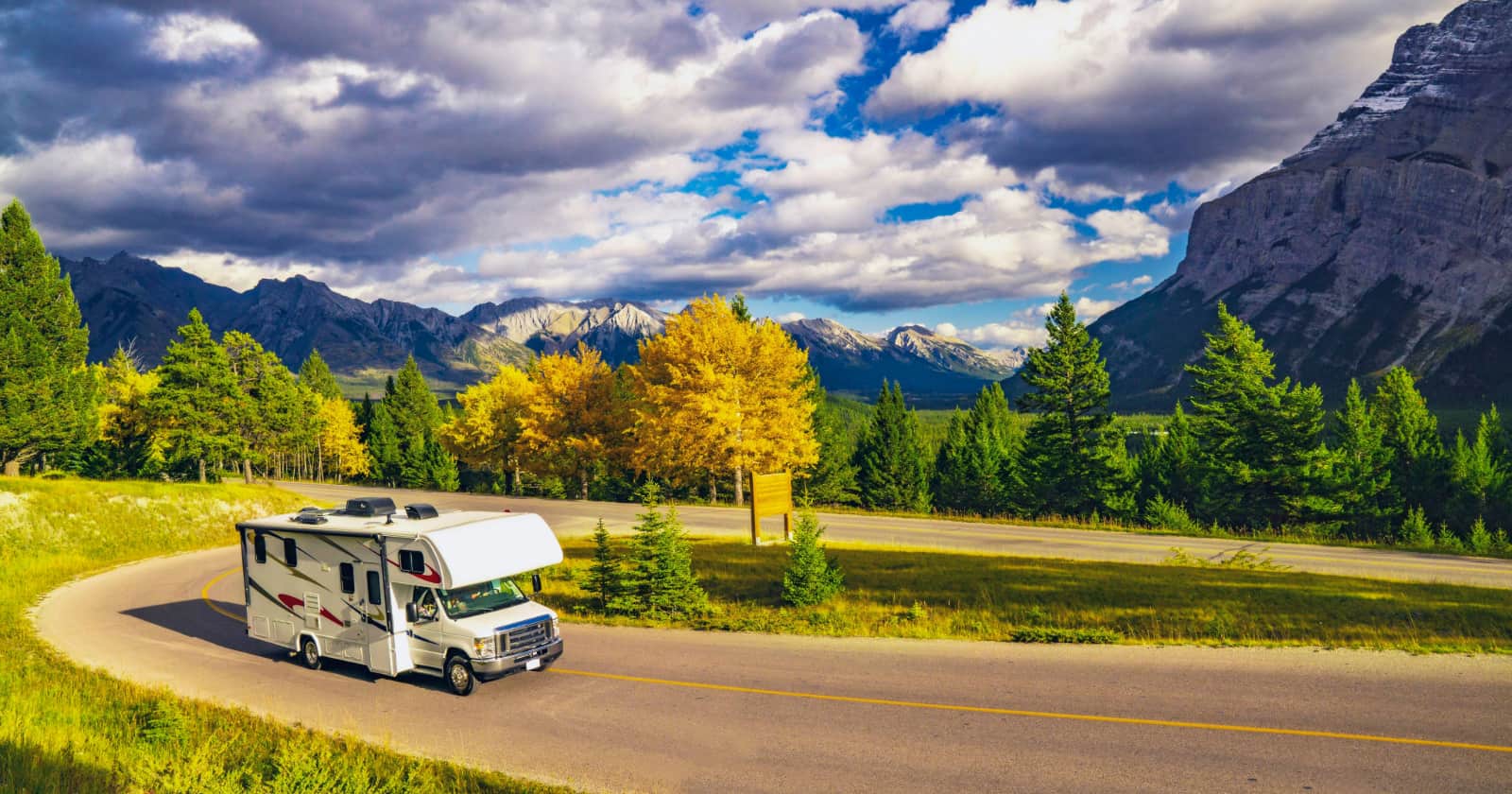Solar Panels On Cloudy Days: How To Make The Most Of Your Installation
Solar power systems offer free and clean power for your RV. Regardless of whether you are boondocking in a remote location or elsewhere, a solar setup can provide ample and noiseless energy whenever required.
Solar systems use solar panels to collect and convert sunlight into electricity. The electrical energy is then stored in batteries until it’s used to power anything in an RV. However, a popular question among RVers is, “Do solar panels work on cloudy days?”
Learn how solar power systems work and find out if solar panels stop working on cloudy days.
How does a solar power system work?
Solar panels are comprised of photovoltaic cells, which collect energy from sunlight and convert it into electricity. Each photovoltaic cell is like a little semiconductor sandwich made from two slices of semiconducting material (usually silicon), which create an electrical field.
To actually conduct electricity, each slice of the sandwich needs to be either positive or negative. Boron is added to one slice to make it positive. Phosphorous is added to the other slice to make it negative. Because there is now a positive and a negative pole, an electrical field has now been created between the two slices of silicon.
Then, when photons from sunlight hit the solar panel, they knock electrons free from atoms in the photovoltaic cells. Metal plates on the sides of the photovoltaic cells then collect the electrons. The electrons are pushed into wires, where they can flow through a charge controller to be stored as electricity in a battery bank.

How stored electricity is used in an RV
Each battery in an RV solar power system can store a certain number of amp-hours of electricity that can be used to power anything in the RV. Of course, this is only possible as long as there is enough power stored in the battery bank. The electricity will have to be inverted to be used to run appliances that require AC power. Electrical outlets, the microwave, and the fridge are all examples of appliances that require AC power. Inversion of electricity is done by an inverter.
Transfer switches are often added to RV solar power systems to automatically send DC or AC power to appliances, depending on their needs.
Solar panels on cloudy days
Solar panels work by collecting sunlight. They do this best on sunny days when the sunlight isn’t filtered through clouds. However, they will still work on cloudy days too. They will just be slower to collect and convert the sunlight into electrical energy.
Solar panels will work at reduced efficiency as long as they aren’t shaded or in a completely sunlight-free environment. However, of the three types of solar panels, one is much more efficient at producing electricity on cloudy days. Let’s have a look at two types of solar panels suitable for RVs, and why one is better than the other on cloudy days.
The solar panels for cloudy conditions
Monocrystalline solar panels are the best choice when you are faced with cloudy conditions on a regular basis. These solar panels have photovoltaic cells that are made with a single crystal of silicon. Electrons flow much more quickly and efficiently through the single-crystal structure than other types of solar panels. The flow of electrons through the crystals equates to more efficient electricity production, even when sunlight is filtered through clouds.
Because monocrystalline solar panels are much more efficient at collecting and converting sunlight into electricity than other types of solar panels, they are smaller than other types of solar panels. This makes them ideal for portable, suitcase-style solar power setups. The only drawback of monocrystalline solar panels is that they are more expensive than other types of solar panels.
Why you shouldn’t use polycrystalline solar panels
Polycrystalline solar panels are not the best solar panels to have if you need to produce electricity when it’s cloudy. Instead of being made with a single silicon crystal, polycrystalline photovoltaic cells are made with multiple crystals. This makes it much harder for the electrons to get through the crystalline structure, resulting in less efficient electricity production.
As a result, polycrystalline solar panels tend to be far less sensitive to sunlight than monocrystalline solar panels. These panels are bigger but cheaper to produce, so they tend to be lower-priced than the monocrystalline panels. Polycrystalline solar panels are a better choice for applications where space isn’t an issue, and where cloudy days are a rarity.
The third type of solar panel is the thin film solar panel. These solar panels are simply not efficient enough to be used in cloudy conditions.
Get tips from other RVers
Solar panels do work in cloudy conditions. However, some solar panels work better than others. If you want to harness the power of the sun to generate electrical power for your RV, but you camp in cloudy places, you’ll want to invest in monocrystalline solar panels for your solar power setup.
One of the best parts about RVing is engaging with the community of traveling enthusiasts. iRV2 forums allow folks to chat with other RVers online, and get other perspectives on everything RVing, including products, destinations, RV mods, and more.
Related articles:



